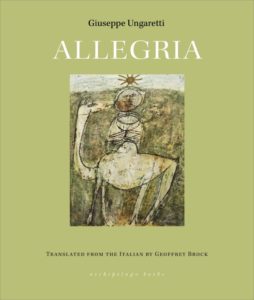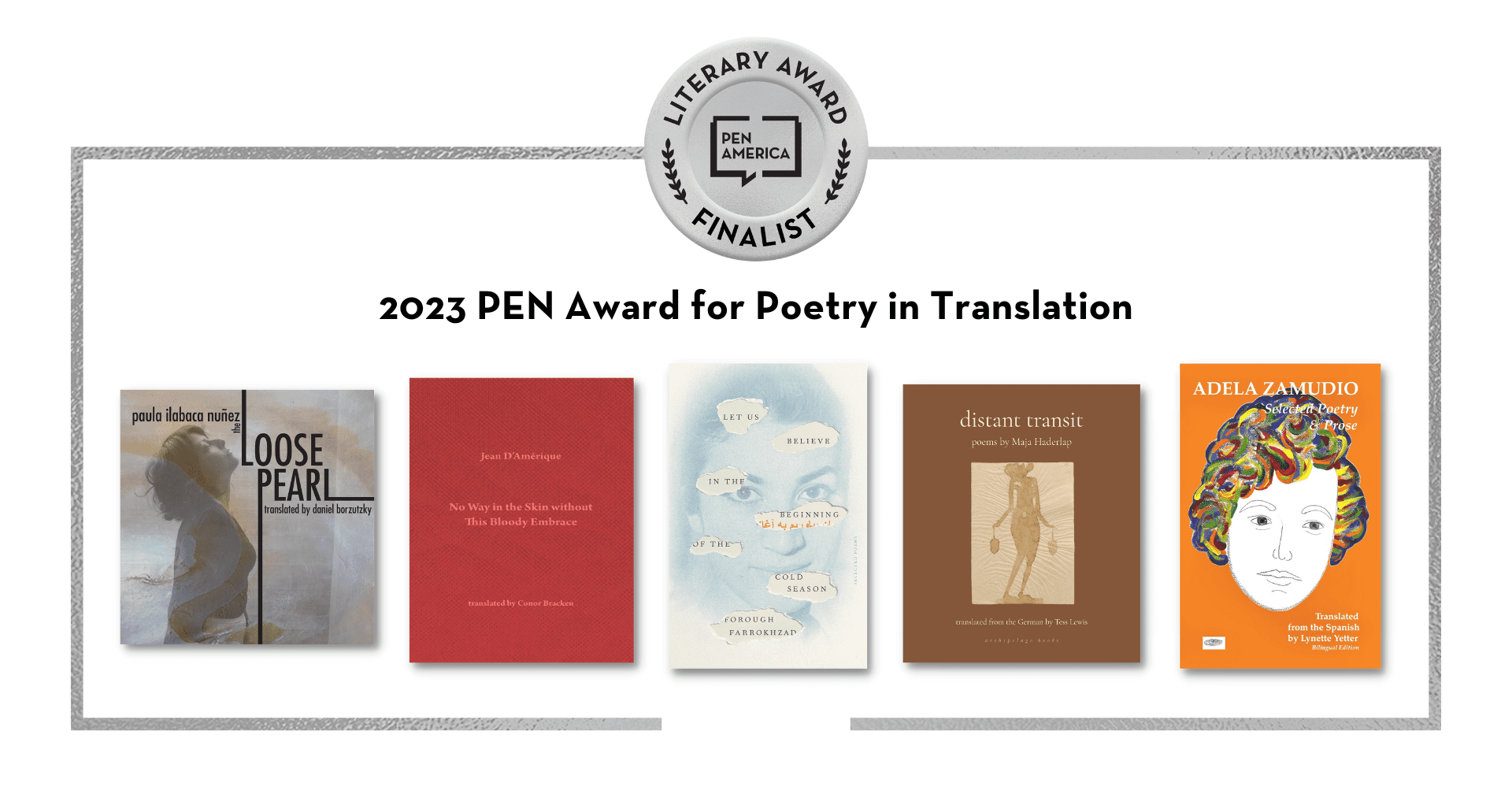Review of Allegria in the Journal of Italian Translation
We are delighted to share that Marco Sonzogni’s review of Giuseppe Ungaretti’s Allegria, translated by Geoffrey Brock, was published in the Journal of Italian Translation.
Anche questa notte passeràQuesta solitudine in giro
titubante ombra dei fili tramviari
sull’umido asfalto
Guardo i testoni dei brunisti
nel mezzo sonno
tentennare
This night too will pass
This roving solitude
tentative shadows of tram wires
on damp asphalt
I watch the big heads of the coachmen
half sleeping
totter
Were I to read this text without knowing it was a translation I would consider it in every way a successful original work in English and would immediately want to try translating it into Italian.
The second example is “Sempre Notte”:
La mia squallida
vita
si estende
più spaventata
di sè
in un
infinito
che mi calca e mi spreme
col suo
fievole
tatto
fluente
which becomes “Night Again” in Brock’s English:
My wretched
life
stretches on
ever more fearful
of itself
into an
endlessness
that tramples and crushes me
with its
faint
flowing
touch
Though it’s true that word-for-word translations rarely yield satisfying results, and true that word-level equivalence may be sacrificed on the altar of a more “comprehensive” equivalence, it is nonetheless worth noting how these two small ‘mirrors’—“ever more fearful / of itself” for “più spaventata / di sè” and “into an / endlessness” for “in un / infinito”—reflect the translator’s great sensitivity. Again, should I fail to recognize in the English text the translation of a poem by one of our most important poets, I would consider “Night Again” an absolutely successful poem in English and would like to try to reproduce it in Italian.
“Noia” and “Sempre notte,” though not among Ungaretti’s most “classic” poems, are nevertheless, for their emotional intensity and expressive precision, equally definitive standard-bearers of his voice and his poetics. Likewise, “Boredom” and “Night Again” attest to Brock’s talent: a quality and integrity of reading, interpretation, and rendering that are rooted in a natural flair for the forms and functions of poetry and thus at this point go beyond the mastery of language and culture.
*
Jose Saramago said something as beautiful as it is true: writers create national literatures while translators create universal literature. Thanks to these translations, exemplary in their empathy and effectiveness, by Geoffrey Brock and Alberto Bertoni, and thanks to the dedication and investment of Archipelago Books and corsiero editore, the universality of Italian and Irish poetry and have been revealed and renewed.




